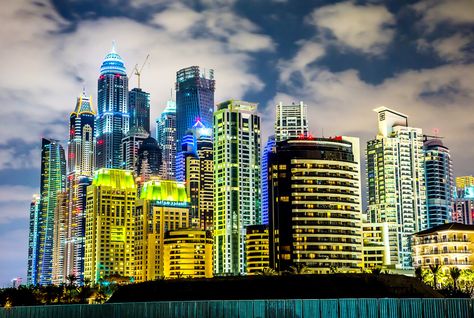The asset manager behind the UAE’s second listed real estate investment trust (reit) expects more to follow.
Emirates NBD Asset Management listed ENBD Reit on Nasdaq Dubai last week.
“There is room in the UAE for 10 or 20 reits,” said Anthony Taylor, fund manager of real estate for Emirates NBD Asset Management. “This is a very significant part of the investment horizon. We feel comfortable, being second, that many more will follow and it’s important to have an established market.”
Although listed reits have only existed in the UAE since the launch of Emirates Reit on Nasdaq Dubai in 2014, institutions have been setting up unlisted collective investment vehicles since the mid-2000s.
These include the US$200 million Arabian Real Estate Investment Trust, set up in 2006 by HSBC and Daman, the original Emirates Reit vehicle which was established in 2010 by Dubai Islamic Bank and Dubai Properties and the original ENBD Reit, which was set up as a Jersey- based open-ended real estate fund in 2005. Unlisted reits also operate in Kuwait and Bahrain.
Despite generating attractive yields, many reits in the GCC have struggled to acquire the sort of big-ticket blocks of apartments and offices in which reits traditionally invest.
Fund managers say that for large assets worth more than Dh1 billion, yields have shrunk to between 5.5 and 6 per cent as trusts compete with sovereign wealth funds, private family groups and Asian pension funds.
But with more investment grade stock completing in the UAE and an economic slowdown making it harder for companies to get their hands on cash for expansion, analysts predict that more reits are likely to list.
“Reits are attractive to investors because they offer a better distribution than buying shares in a listed property company,” said Craig Plumb, the head of research at JLL’s Dubai office. “We believe that there will be an increase in the number of reits listed in the UAE going forward as we are likely to see big real estate owners and developers putting property into a trust.”
Last month the fund manager behind Emirates Reit said it had teamed up with Al Hamra Real Estate Development and National Bonds to create the UAE’s first residential real estate trust, which is expected to float on one of the UAE markets at a later date. The fund manager is also looking to set up reits based around hotels, logistics and sporting assets.
Last year the Saudi Arabian government passed new rules allowing reits to be traded on the Tadawul and paving the way for two new reits to be listed there – the 500 million Saudi riyals (Dh489.6m) Riyad Reit and the 118m riyals Al Jazeira Reit. Under the new rules, Saudi reits are allowed to invest up to 25 per cent of their total asset value in properties outside the kingdom. According to NBC Capital, the listed two reits apiece in the UAE and Saudi Arabia compares with 241 in the US, 57 in Japan, 48 in Australia, 31 in France, 43 in the UK, 47 in Canada and 41 in Singapore.
The bank says it expects the number of reits in Saudi Arabia and across the region to “increase significantly” over the next two years.
“Reits in the GCC region are at the nascent stage,” said NBC Capital in a note to investors this month. “With the exception of Saudi this is due to factors including a lack of legislation [until recently], relatively small populations of GCC countries [hence lower demand] size of stock markets, and misplaced demand and supply (the reit asset base is primarily GCC; however, the region’s population largely comprises expats). In our view, as each of these factors is mitigated and the market matures, more reits should evolve in the region.”
All rights reserved to the initial publisher for The National.
Collected and published by Arms &McGregor International Realty® editorial team. Get in touched with us at [email protected]

